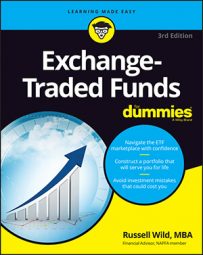The best investing strategy is to buy and hold a well-balanced portfolio (including ETFs) and rebalance it once a year. But if you insist on day trading ETFs , just play by a few rules.
After all, gambling (and that is what such short-term forays into the market are) can be fun. Not only that, but the odds of making money by gambling on an ETF are much greater than they are by, say, playing the horses, shooting craps, or standing in line at 7-11 on a Friday afternoon to buy lottery tickets. After all, the “house” takes only a small cut when you play the markets. And time is on your side.
Rule #1
Separate gambling from investing; have a (small) fixed amount of money to gamble with. Take it from cash. Don’t sell your buy-and-hold investments to finance your gambling.
Rule #2
If you find that you are getting fixated on your wins and losses, quit. If it isn’t fun, don’t do it. If you find that you are spending an inordinate amount of time playing the markets, quit. There is more to life.
Rule #3
Don’t buy on margin. If you are borrowing money from the brokerage house to trade, that could spell big trouble. Margin money usually costs much more than you think.
Fidelity Investments — a highly regarded brokerage — recently ran full-page magazine advertisements offering low rates for margin borrowing. If you read the very small print at the bottom of the page, it explains that the advertised rate pertains only to margin loans over $500,000. Small players pay much more.
Rule #4
Ask yourself what you’re going to do if you get stuck. Have an exit plan. What if you buy EEM on an exceptionally volatile day, and you expect it to rise 3 percent, but instead it falls 4 percent? Are you going to hold it until it climbs back up? Are you going to cash out and take the hit? Have a plan in place before you make the trade, and stick to it.
Consider placing a stop-loss order going in, at a price that reflects how much you’re willing to lose. That way, if the trade goes against you, your plan will be implemented automatically without requiring you to make a gut-wrenching decision in the heat of the moment.
Rule #5
If you think that you have a superhuman ability to time the markets, ask yourself if that is really what you want to do for a living. Day-trading isn’t exactly a career that benefits the community or grows your consciousness.

